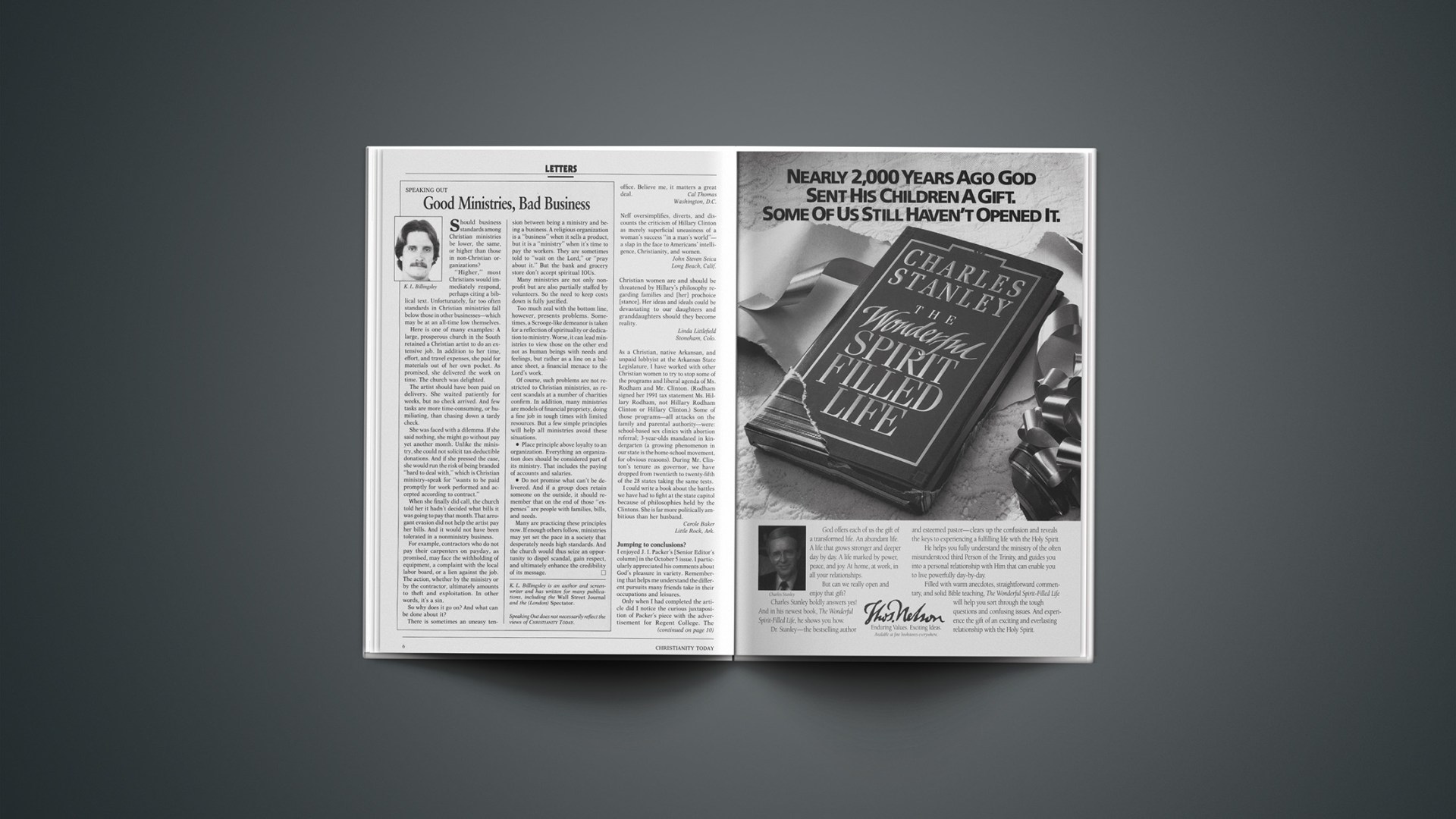Should business standards among Christian ministries be lower, the same, or higher than those in non-Christian organizations?
“Higher,” most Christians would immediately respond, perhaps citing a biblical text. Unfortunately, far too often standards in Christian ministries fall below those in other businesses—which may be at an all-time low themselves.
Here is one of many examples: A large, prosperous church in the South retained a Christian artist to do an extensive job. In addition to her time, effort, and travel expenses, she paid for materials out of her own pocket. As promised, she delivered the work on time. The church was delighted.
The artist should have been paid on delivery. She waited patiently for weeks, but no check arrived. And few tasks are more time-consuming, or humiliating, than chasing down a tardy check.
She was faced with a dilemma. If she said nothing, she might go without pay yet another month. Unlike the ministry, she could not solicit tax-deductible donations. And if she pressed the case, she would run the risk of being branded “hard to deal with,” which is Christian ministry-speak for “wants to be paid promptly for work performed and accepted according to contract.”
When she finally did call, the church told her it hadn’t decided what bills it was going to pay that month. That arrogant evasion did not help the artist pay her bills. And it would not have been tolerated in a nonministry business.
For example, contractors who do not pay their carpenters on payday, as promised, may face the withholding of equipment, a complaint with the local labor board, or a lien against the job. The action, whether by the ministry or by the contractor, ultimately amounts to theft and exploitation. In other words, it’s a sin.
So why does it go on? And what can be done about it?
There is sometimes an uneasy tension between being a ministry and being a business. A religious organization is a “business” when it sells a product, but it is a “ministry” when it’s time to pay the workers. They are sometimes told to “wait on the Lord,” or “pray about it.” But the bank and grocery store don’t accept spiritual IOUs.
Many ministries are not only nonprofit but are also partially staffed by volunteers. So the need to keep costs down is fully justified.
Too much zeal with the bottom line, however, presents problems. Sometimes, a Scrooge-like demeanor is taken for a reflection of spirituality or dedication to ministry. Worse, it can lead ministries to view those on the other end not as human beings with needs and feelings, but rather as a line on a balance sheet, a financial menace to the Lord’s work.
Of course, such problems are not restricted to Christian ministries, as recent scandals at a number of charities confirm. In addition, many ministries are models of financial propriety, doing a fine job in tough times with limited resources. But a few simple principles will help all ministries avoid these situations.
• Place principle above loyalty to an organization. Everything an organization does should be considered part of its ministry. That includes the paying of accounts and salaries.
• Do not promise what can’t be delivered. And if a group does retain someone on the outside, it should remember that on the end of those “expenses” are people with families, bills, and needs.
Many are practicing these principles now. If enough others follow, ministries may yet set the pace in a society that desperately needs high standards. And the church would thus seize an opportunity to dispel scandal, gain respect, and ultimately enhance the credibility of its message.
K. L. Billingsley is an author and screenwriter and has written for many publications, including the Wall Street Journal and the (London) Spectator.
Speaking Out does not necessarily reflect the views of CHRISTIANITY TODAY.










